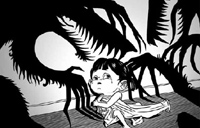No letup in war against child-traffickers
By Wu Yan (chinadaily.com.cn) Updated: 2014-11-07 18:02Photos of 11 trafficked infants released by police have been widespread online and created a national campaign to help them become reunited with their families, with the related post attracting 140 million clicks and 70,000 comments on Sina Weibo, China's version of Twitter, by Friday.
The nationwide effort was overshadowed though by the rampant child-trafficking that has dogged China for years. Less than a week ago, a similar ring was busted with seven children rescued and 13 suspects arrested in Fuzhou, East China's Fujian province.
 |
| Parents sought for 11 trafficked infants |
In another case in March last year, police rescued 92 children and two women while seizing 301 suspects during a crackdown against an "outsized" human trafficking gang.
Also in 2013, police rescued a stunning 52,000 abducted children out of more than 8,600 child-trafficking cases that year, legaldaily.com reported.
It is believed the tradition of preferring boys over girls and legal loopholes has led to a strong demand from "buyers".
China has advocated a one-child policy since the 1970s, aiming to deter people persistently having children in an attempt to get a male offspring to continue the family line.
In some regions, especially the rural southwest, people are willing to go far to get a boy so that their family lines will "survive".
Another contributing factor has been the mild legal consequences of purchasing abducted children. According to Chinese law, "buyers" shall be exempt from criminal liability if they have not ill-treated or impeded the rescue of trafficked children.
Chen Shiqu, director of the anti-trafficking office, Ministry of Public Security, believes it "is hard to stop buyers".
"We are stepping up efforts to get punishment of buyers into law. We also want to change the way rescued children are treated. When they are taken from a buyer they will be sent to social welfare institutes," the People's Daily quoted Chen as saying.
Adoption also has a role to play.
 |
| Nurse accused of child trafficking |
According to Xu Jianzhong, a senior official at the Ministry of Civil Affairs, about 30,000 children are currently living with foster families across the country and latest figures from the ministry show the number of registered orphans to be about 600,000.
Qin Xiyan, a lawyer from Central China's Hunan province, submitted a proposal to amend the adoption law a few years ago.
The proposal pointed out some parts of the law, implemented in 1992, were outdated, with high qualifications set for foster family applicants, deficient adoption procedures and lack of supervision. Legal loopholes encourage underground adoption and child-trafficking.
In an encouraging sign, a new regulation on foster families was issued on Sept 26. It is expected to help state-certified families adopt orphans and homeless children, Xinhua News Agency quoted Xu as saying.
China is not alone in its fight against child-trafficking. In the US, an 'Amber Alert' rapid response system has been established to tackle such crimes with profiles of a missing child publicized through various channels:TV, radio, text messages, Facebook, Twitter, website pop ups and banners and large screens in public places.
Since the inception of the program in 1996, at least 670 children have been rescued specifically due to Amber Alerts being issued. The system has dramatically increased the percentage of missing children found from 62 percent in the 1990s to more than 95 percent now, Central Television News reported.
China introduced a DNA information system solely for child-trafficking cases in 2009. It has been used to identify parent-child relationships by comparing samples collected from families of missing children. "(As of October), it has helped find more than 3,500 kidnapped children," Chen Shiqu said.
More efforts have been introduced to save abducted children. On Nov 3, an online platform was launched in Beijing to construct a database for parents, children, the police and the public at large to share related information.
- Govt encourages people to work 4.5 days a week
- Action to be taken as HIV cases among students rise
- Debate grows over reproductive rights
- Country's first bishop ordained in 3 years
- China builds Tibetan Buddhism academy in Chengdu
- Authorities require reporting of HIV infections at schools
- Typhoon Soudelor kills 14 in East China
- Police crack down on overseas gambling site
- Debate over death penalty for child traffickers goes on
- Beijing to tighten mail security for war anniversary







